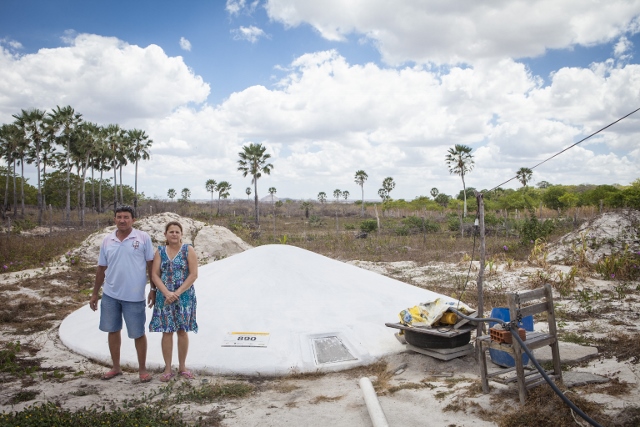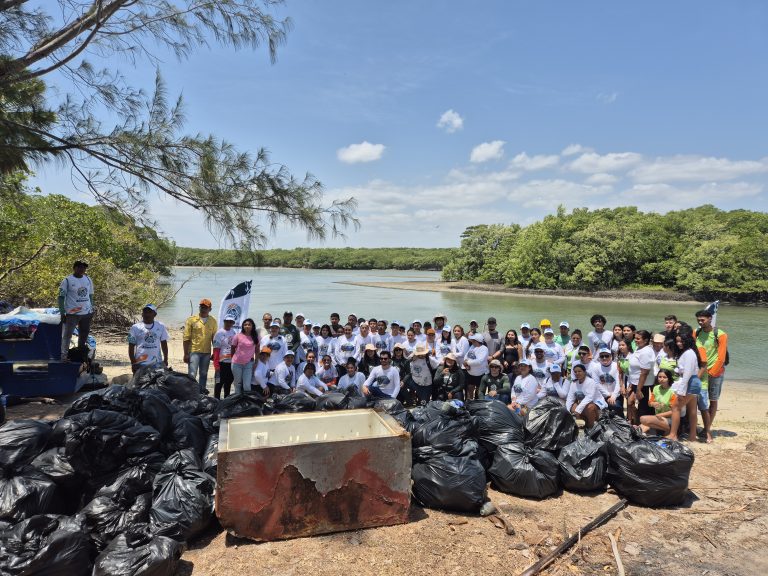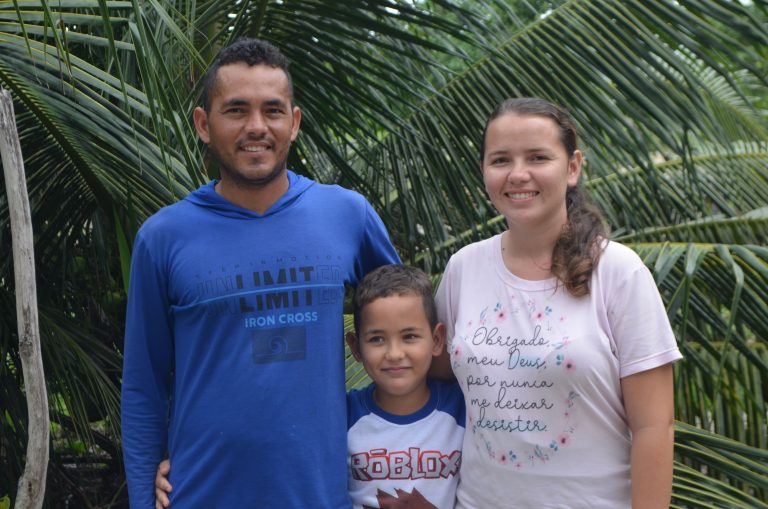Autonomy and Collective Action: Pessoa’s Story and the Community Achievements
Autonomy and Collective Action: Pessoa’s Story and the Community Achievements
Farmer Raimundo Rodrigues Pessoa is one of those men you think you have already met somewhere, in some informal conversation in the streets of Itapipoca, in Northeastern Brazil, or perhaps in one of the downtown barbershop, the rural workers union or the fairs. Pessoa, as he is best known, is president of the Community Association Caldeirões II, located about 20 km from Itapipoca.
Pessoa came to the community 23 years ago, at that time everything was different, he says: “the only thing one could find here, were bushes and vague politicians’ promises, so I built this little house here and then we started to get together to form the association.” From the beginning, the farmer knew that if they organized, they could get their voice out, fighting for improvements in the locality. It was through mobilization that the united community managed to install 500 lampposts, meaning a huge victory for the association. “We started to fight for this project and we got the posts, and it wasn’t just for Caldeirões II, they were even installed in other surrounding settlement too”, says Pessoa, remembering the difficulties in dialoguing with governments and companies. “As I was ahead of it, I made about 30 trips to Itapipoca and went even as far as to Fortaleza, visiting Chesf (São Francisco Hydroelectric Company), and finally it worked”, says the farmer with pride.
Even after they got electricity, other challenges were facing the Caldeirões II community. Water scarcity had been hampering the farmers’ production, albeit some promises to build dams and wells, but they seemed too far away for the community’s needs. It was then that Pessoa heard about the projects developed by the Brazilian Semi-Arid Articulation (ASA), through the work developed by the entities that executed the ‘Program of One Million Cisterns’ (P1MC) and the ‘One Land and Two Waters Program’ (P1 + 2). The farmer soon got informed on how his own community could have access to the projects. “Today, thanks to God everyone has the first cistern and some already have the second one, and our goal is that all the houses will soon have the second water too,” says Pessoa proudly. For the farmers, the ‘first water cistern’ guarantees to all residents of Caldeirões II a good quality drinking water. Throughout the year and with the arrival of the ‘second water cistern’, production diversified, which resulted in quality food for the families.

Maria das Dores, Pessoa’s wife, works at the municipal school and highlights the impact of these projects on the family’s and the school, especially with the access to good food, free of pesticides, produced in an agroecological manner. “Back at school the kids didn’t like much vegetables (laughs), so I started taking some products there, cabbage, eggplant. I asked the kitchen girls to prepare it well, the result was excellent, besides it being healthy, they started enjoying to eat these products”, says Maria das Dores. For her, the process of building the cisterns, with the courses and training, was important also as a means to gain new knowledge. “I learned about the many issues of taking care of the cistern, to keep the water always clean. In the trainings and exchanges we always hear something of worth, because the most experienced farmers always teach us new things ”.
The Caldeirões II Community has strengthened its history as it builds, through the collective power, a better place to live in, leaving behind the marks of difficult times. “The only ones who could take bank loans were the rich. As for us the poor, we could not even get into a bank, but today, with the projects, we make houses, we produce quality food that feeds most of the Brazilians”, says Pessoa. The farmer knows there are still many difficulties, but prefers to believe in the future and the strength of collective efforts, besides the new kind of public policies aimed to meet the needs of the farmers. “We are many years behind schedule, many governments that have done nothing for us, but it seems now that they have finally remembered the poor”, says Maria das Dores firmly.
Raimundo Pessoa and Maria das Dores have three children, Raniere, Railton and Raiane, already involved in other activities such as environmental projects and family farming. The Caldeirões II community has a large part of its economy focused on the production of cassava and its derivatives, besides the marketing of cashews. The couple is aware that thanks to the families’ union and their direct action through the association, their voice is stronger. Pessoa now smiles easily in the knowledge that some difficulties have been overcome, and that living in the Semiarid Drylands means to unite, resist and produce.


